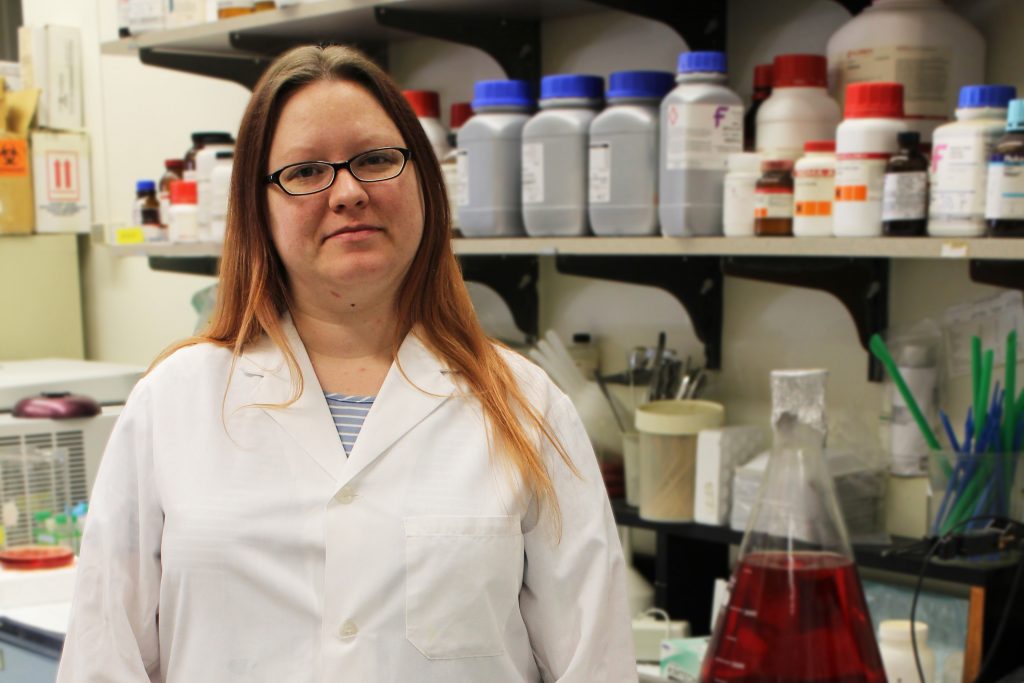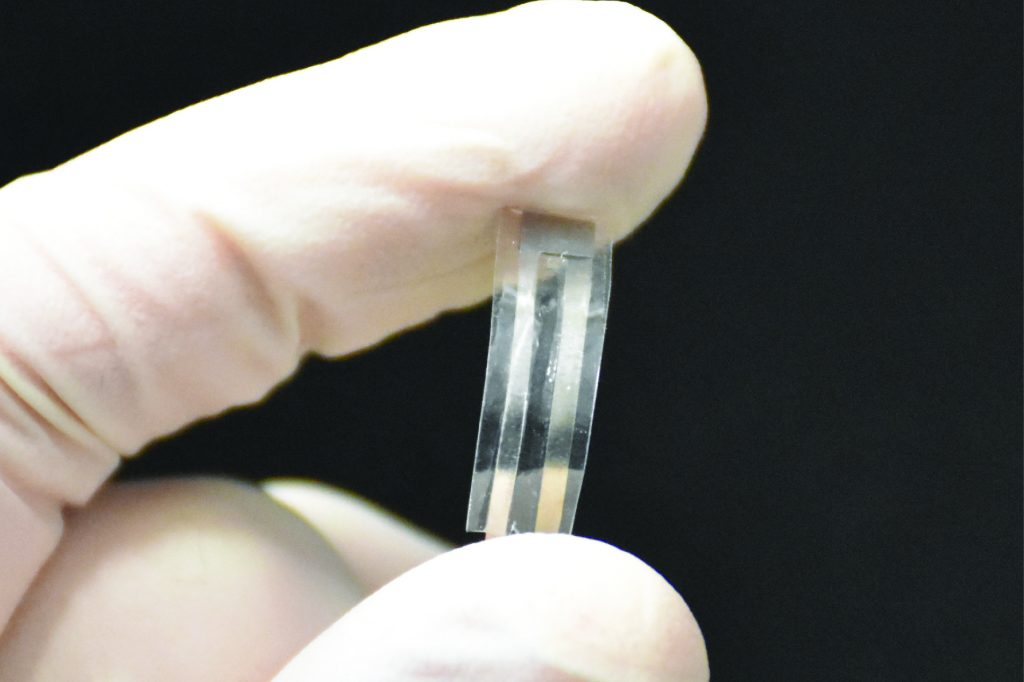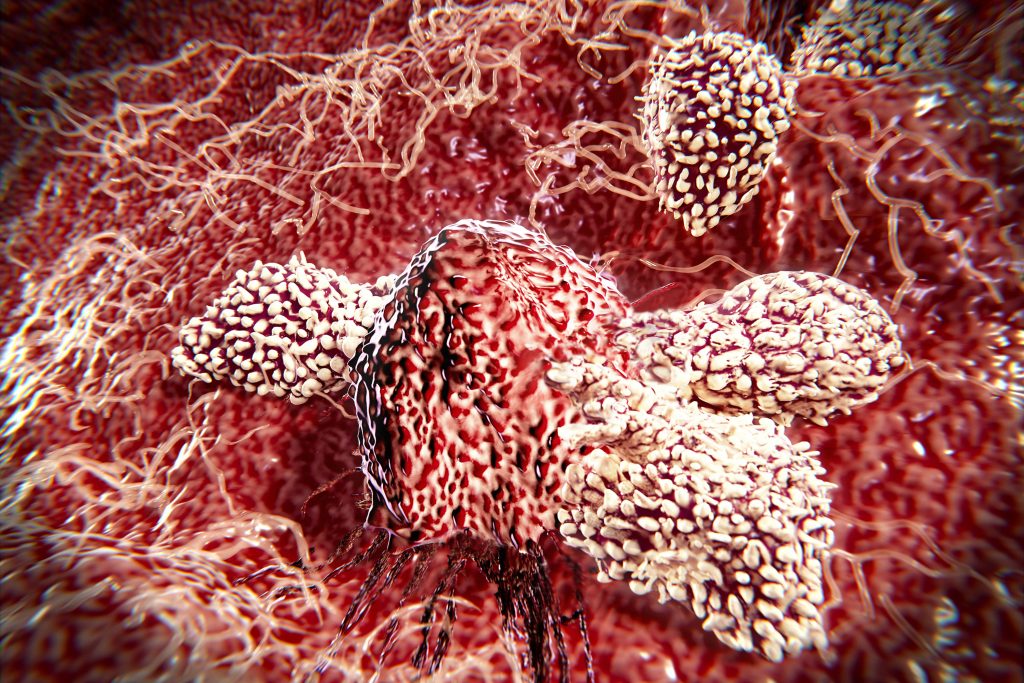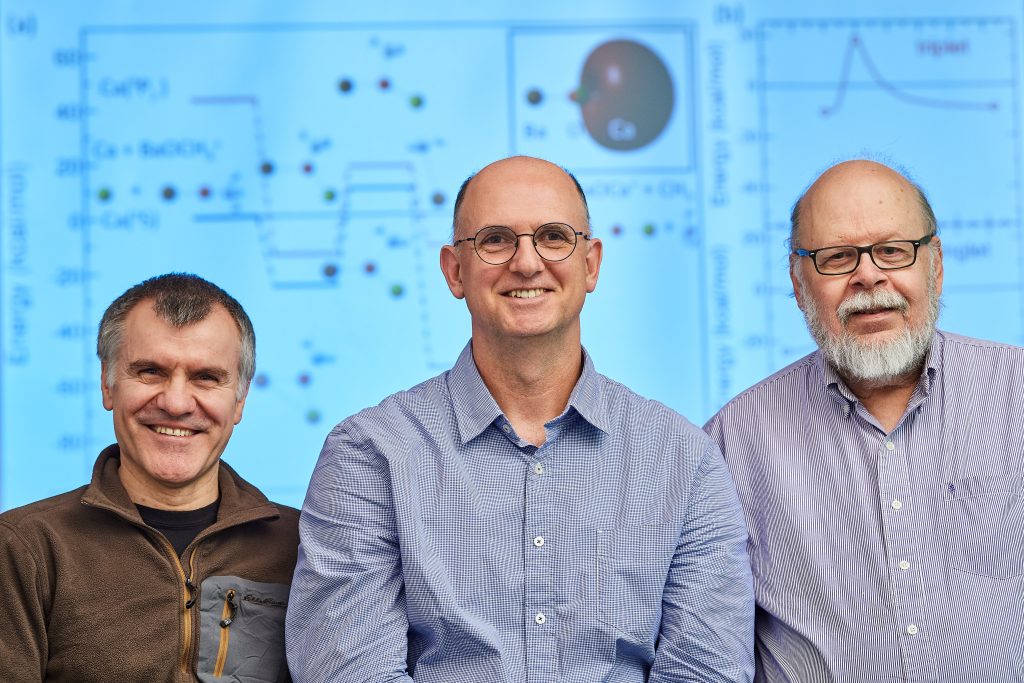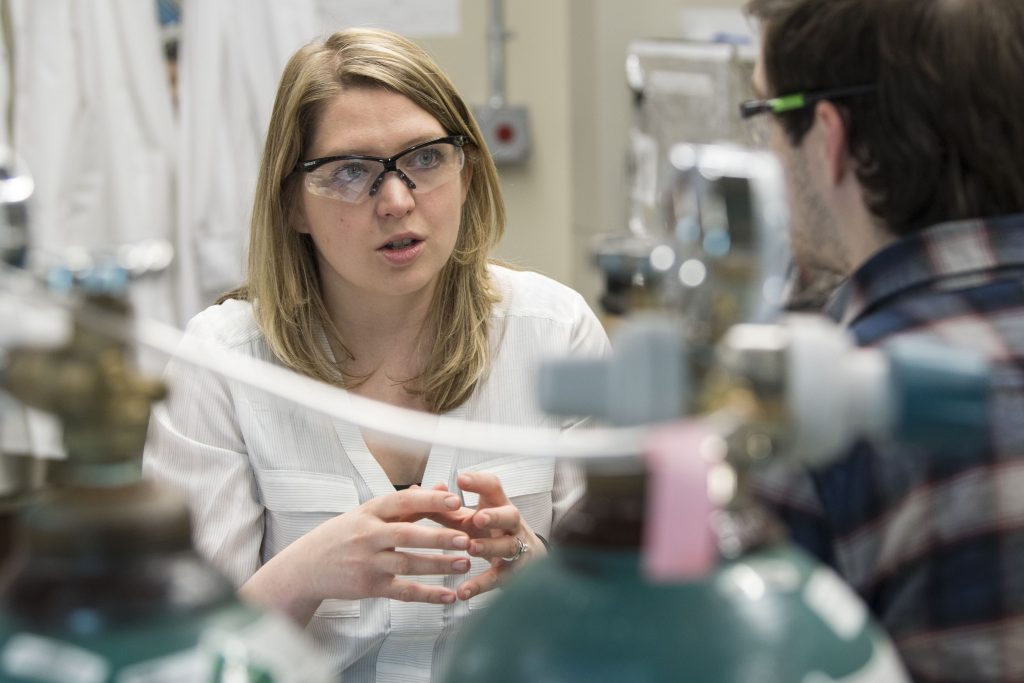The Graduate School
What Makes the Bacteria Behind Lyme Disease Tick?
UConn Health researchers are advancing understanding of how the bacteria transmits disease, pointing to the potential for ultimately developing therapeutics to target this system.
February 8, 2018 | Jessica McBride, Office of the Vice President for Research
Exercise Can Improve Alzheimer’s Symptoms
Nearly two dozen studies on the effect of exercise on people with Alzheimer's indicate that there is a cognitive benefit, says a new UConn analysis.
January 30, 2018 | Kristen Cole
Once in a Blue Moon
On the last night of this month, three lunar events will occur simultaneously, as astrophysics graduate student Yasaman Homayouni explains.
January 30, 2018 | Elaina Hancock
Biodegradable Sensor Monitors Pressure in the Body then Disappears
The new sensor is designed to replace existing implantable pressure sensors that have potentially toxic components, which must be removed after use.
January 15, 2018 | Colin Poitras
Removing the Immunotherapy Blindfold
UConn Health researchers are developing a technology that can identify which patients will respond to immunotherapy, with the goal of extending the benefits of the treatment to a wider group of patients.
January 11, 2018 | Jessica McBride, Office of the Vice President for Research
Controlling Chemistry with the Tools of Physics
UConn physicists explain how individual atoms and molecules react in an ultracold environment, providing new insight into the forces at work in chemical reactions.
December 19, 2017 | Colin Poitras
The Impact of Winter Storm Names
If the storm is large enough and enough people are within the storm warning range, it gets a name. But a UConn researcher found the name does not add credibility.
December 14, 2017 | Kenneth Best
From Barbie to Superheroes: The New Femininity in Dolls
The appearance and dress of the new generation of fashion doll characters is a departure from Barbie’s idealized image and has changed the way children play, according to graduate student Sara Austin.
December 13, 2017 | Kenneth Best
Animating Biological Concepts
Biology majors enrolling for next semester in the lab section of Biology 1107 will be among the first to benefit from a series of five instructional animations developed by students in digital media and art.
December 5, 2017 | Kenneth Best
Tailoring Treatment to Combat Diseased Cells at the Genetic Level
A UConn researcher developed a new drug delivery system using a synthetic-biological hybrid capsule that leaves healthy cells alone, increasing effectiveness and reducing unwanted side effects.
December 4, 2017 | Jessica McBride, Office of the Vice President for Research
